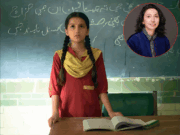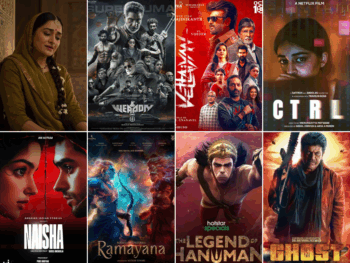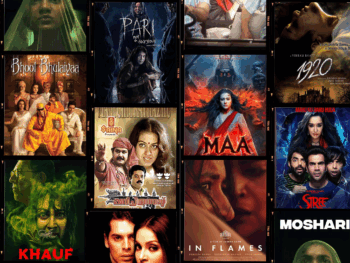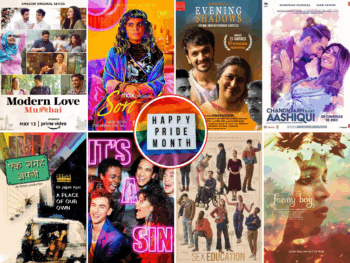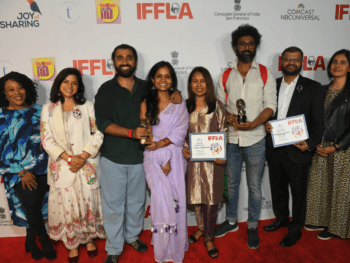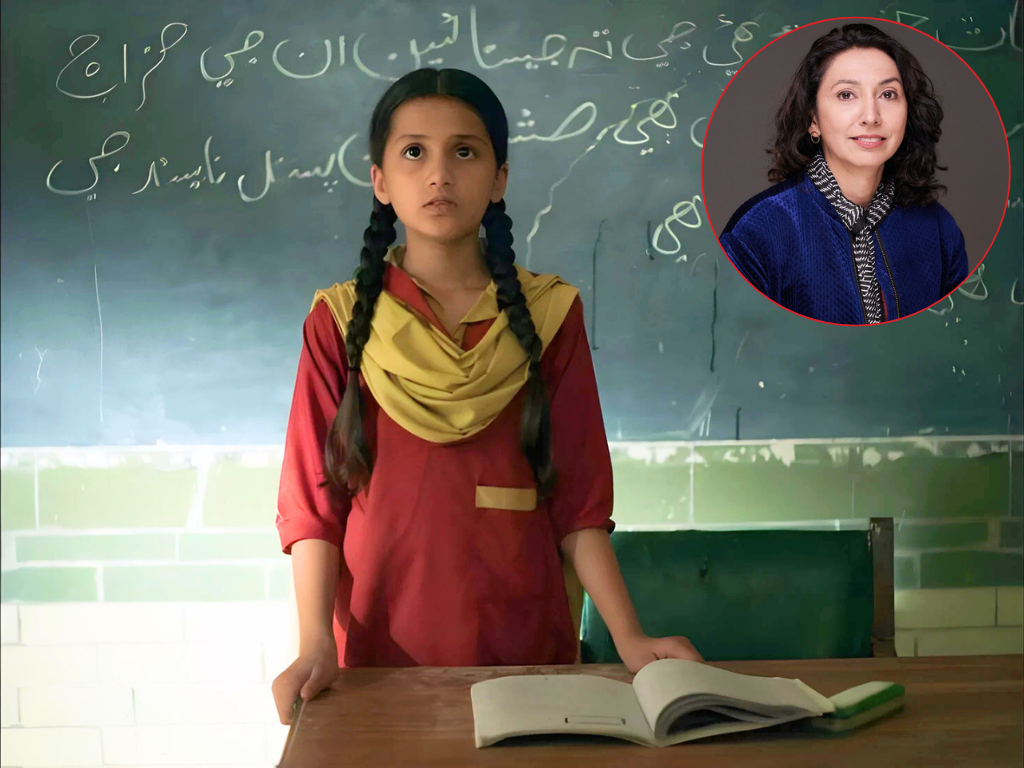
Exclusive: Director Seemab Gul On ‘Ghost School’ – A Pakistani Tale Of Childhood & Corruption
Entertainment Sep 26, 2025
After making its world premiere at the 50th Toronto International Film Festival (TIFF), acclaimed British-Pakistani filmmaker Seemab Gul’s Ghost School is now set to captivate audiences at the International South Asian Film Festival (iSAFF). The film will make its British Columbia premiere on Sunday, September 28, at Landmark Theatre 12.
Set in a small village in Pakistan, this powerful feature debut follows ten-year-old Rabia as she confronts superstition and corruption in her quest to uncover the truth behind her school’s sudden closure, amid unsettling rumours of haunting and possession.
Ahead of the iSAFF screening, I had the opportunity to sit down with Seemab Gul for an insightful conversation about the making of Ghost School, its themes, and the creative journey behind bringing this story to life.
Catch my full conversation with Seemab, and be sure not to miss Ghost School at iSAFF.
Our Exclusive Chat With Seemab Gul
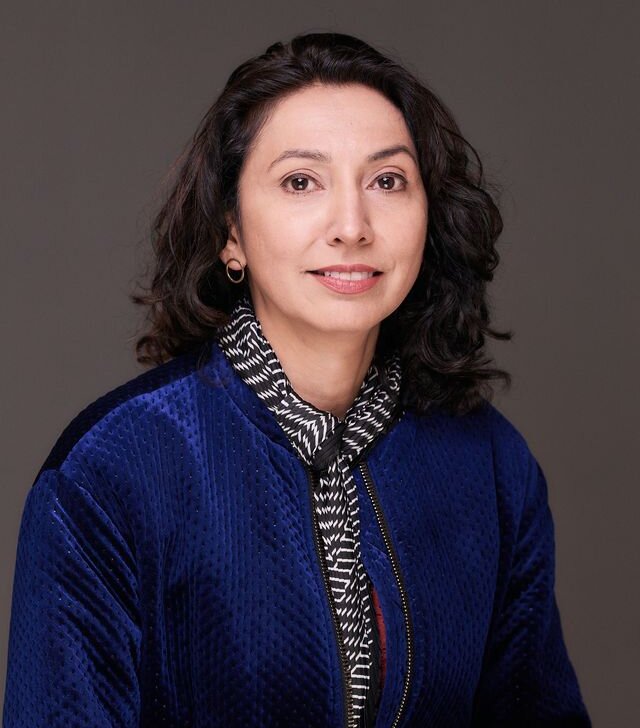
Mehak Kapoor: Hi, Seemab! Congratulations on Ghost School!
Seemab Gul: Thank you, Mehak, for having me
Mehak Kapoor: Could you start by telling us about Ghost School and the story it brings to the screen?
Seemab: Sure, Ghost School is my debut feature film. It premiered at the Toronto International Film Festival, and I’m really glad to be showcasing it next in Vancouver at iSAFF, especially since it marks the festival’s 15th anniversary.
Ghost School tells the story of a 10-year-old girl in a small village in Pakistan whose life is disrupted when her school, the only one in the village, suddenly shuts down. Every adult she turns to offers a different explanation, but after receiving conflicting answers, she ultimately finds the courage to seek out her own solution.
Mehak Kapoor: What inspired you to focus on the journey of a ten-year-old girl confronting superstition and corruption? – And what did she find out from it…
Seemab Gul: I was travelling across Pakistan when I came across ghost schools, ghost colleges, and even ghost hospitals. These are buildings originally constructed with the intention of serving as schools or institutions, but due to neglect and corruption, they no longer function as such. Many of these schools stand empty, sometimes repurposed as warehouses by local feudal lords or politicians, and at other times used simply as barns for animals.
We’re talking about millions of children being denied an education. While the statistics on this issue are limited, it is estimated that Pakistan has more than 16,000 ghost schools, and over 22 million children are out of school for various reasons, one of them being the existence of these abandoned institutions. This neglect perpetuates a cycle of ignorance and poverty.
This reality inspired me to use the term “ghost school” metaphorically and transform it into a fable, bringing it to life as a magical realist film, which is the fiction feature I went on to create.
Mehak Kapoor: That’s beautifully put. And also, Seemab, you launched your own production company, Cinelava, for this project specifically.
While also collaborating with Germany’s Red Balloon Film and the Red Sea Fund. How did these partnerships help shape the film?
Seemab Gul: Cinelava came about not only for Ghost School. I am also finishing a half-hour climate documentary entitled Climate of Consequences, and producing Haven of Hope, my next feature, under the same Cinelava umbrella.
I actually began producing Ghost School entirely on my own. The production was initially completely self-financed and fully independent. Later, during post-production, I was fortunate to have Red Balloon Films in Hamburg come on board. They were already involved in my second feature, Haven of Hope, and decided to join Ghost School as well, which was a huge support.
While still in post-production, we also applied for the Red Sea Fund from the Red Sea Foundation, and were fortunate to receive their backing. With these partners joining, Ghost School grew into a co-production.
Mehak Kapoor: Congratulations on that, Seemab, and as your debut feature, what were the biggest challenges you faced in bringing Ghost School from concept to screen?
Seemab Gul: I had previously made a short film called Sandstorm in Karachi, Pakistan, and that experience was quite a challenge. Even Sandstorm had a crew of about 100 people, which in many ways prepared me for Ghost School, where I worked with over 250 cast and crew members in Karachi. Managing such a large team in extreme heat was already a huge challenge, but the biggest hurdle was financial. I put in my life savings and even borrowed from family and friends to make this film happen, especially after my other project was postponed yet again. I was so ready to make a feature, so I went ahead and shot it last November.
Mehak Kapoor: What has been the response from the audience at different festivals? As you’ve already mentioned that it was a debut feature at TIFF.
Seemab Gul: Yes, I was totally humbled to have the world premiere at the Toronto International Film Festival. That’s the only festival the film has been to so far, so iSAFF will be the second one. I am really delighted to have such a warm audience at TIFF, and it was a huge South Asian and diaspora audience, some of who didn’t need to read the subtitles. It was so lovely that they could just, you know, react to the scenes and the images. They got the humour, and the film was given much love. You know, most importantly, I felt that the audience understood such a complex and mysterious topic.
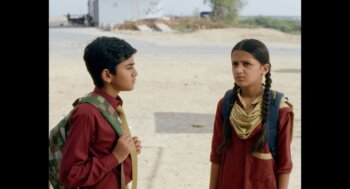
Mehak Kapoor: What conversations or reflections do you hope your school will spark for audiences in Pakistan and internationally?
Seemab Gul: Especially in Pakistan, one of the biggest challenges we face is educating our future generations. With millions of children out of school today, this is a responsibility we cannot take lightly. Through my film, I hope to raise awareness within Pakistan about the issue of ghost schools and the urgent need to address this crisis.
On an international level, I also want to highlight that ghost schools are not unique to Pakistan. They exist in many countries across Asia and even in Africa. In Afghanistan, for example, girls’ cannot attend schools after the students reach the age of 13. While madrasas do exist, they are primarily religious institutions and do not provide a comprehensive education.
This is a widespread and critical challenge affecting millions of children worldwide, and it is something we must not ignore.
Mehak Kapoor: I agree with you, it’s crucial to address this issue before it gets further out of hand, which, unfortunately, has already happened in many Asian countries. That’s a great job, Seemab.
With CineLava, what kinds of stories do you plan to continue directing, writing, and producing? Will you keep exploring narratives that blend culture, folklore, and social commentary?
Seemab Gul: Yes, indeed. Most of my films have focused on strong female characters and the female experience from a female perspective. I made a film calledTaxi Driver, which centred on a working-class Pakistani heroine, and thenSandstorm, which explored the story of a schoolgirl being blackmailed online. My next film, Haven of Hope, which I’m shooting in November, is about women living in sheltered homes in Karachi.
So far, my films have largely been social commentaries grounded in social realism. Ghost School, however, incorporates a touch of magical realism, which presents a new challenge and offers something different for me creatively.
Mehak Kapoor: South Asian cinema is often dominated by mainstream narratives. How important is it for you as a filmmaker to bring forward voices and stories that are rooted in local culture yet resonate globally?
Seemab Gul: Yes, for me, it’s really important to have stories rooted in local culture. My inspiration comes from Iranian cinema and the Romanian New Wave, both of which are deeply rooted in social realism. I realised that we can still create incredibly entertaining stories that carry meaning beyond just song and dance, which, of course, is also wonderful.
I love the idea of diversity in cinema. Audiences don’t need to see only one kind of film, and they certainly don’t want monotony. There is a real potential and hunger, especially among young audiences, for a variety of films that explore different stories and perspectives.
Mehak Kapoor: I agree on that, too. We have talked about the challenging moment, you said it’s heat and finance, right?So what has been the most rewarding moment for you personally while working on Ghost School?
Seemab Gul: The most rewarding aspect, funny enough, is also tied to the financial struggles I faced while making this film. Despite the challenges, the greatest reward was having complete freedom: the freedom to write the film as I wanted, audition as I liked, and cast whomever I chose.
Developing my cinematic language at an early stage in my career, entirely independently, was invaluable. While I had mentors and amazing creative collaborators, like my editor and the talented cinematographer Zamarin Wahdat, I still had the freedom to express myself and tell the story I wanted, without producers, senior executives, or commissioners dictating how it should be written or presented.
For early-career filmmakers, especially those striving to create truly independent work and develop their unique voice, this level of creative independence is both a privilege and an honour.
Mehak Kapoor: That’s awesome!
Beyond festivals, how do you hope to connect Ghost School with audiences, particularly within South Asia?
Seemab Gul: I have a world sales agent, MPM Premium, and I hope they will help us go beyond festivals and reach TV and cinemas wherever possible. We are aiming for releases in the U.S., Canada, and across regions from Australia to Europe. Beyond that, it would be wonderful to have the film on TV in South Asia and at iSAFF.
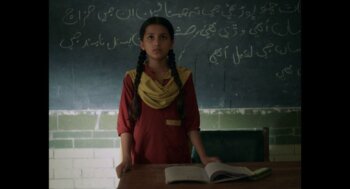
Mehak Kapoor: If there’s one message or feeling you want audiences to carry with them after watching Ghost School, what would it be?
Seemab Gul: Well, I hope that inspiration and creativity are what audiences take away from the film. The way I see it, the ending shows our protagonist, Rabia, using her imagination to find a solution to an impossible situation. I would love for audiences to do the same in their own lives.
Mehak Kapoor: Thank you, Seemab, for taking the time to speak with me and for sharing the inspiration behind Ghost School.
Ghost School
Mehak Kapoor | Entertainment Editor
Author
Mehak Kapoor (@makeba_93) is an entertainment and lifestyle journalist with over a decade of experience in anchoring and content creation for TV and digital platforms. Passionate about storytelling and factual reporting, she enjoys engaging with diverse audiences. Outside of work, she finds solace i...


































